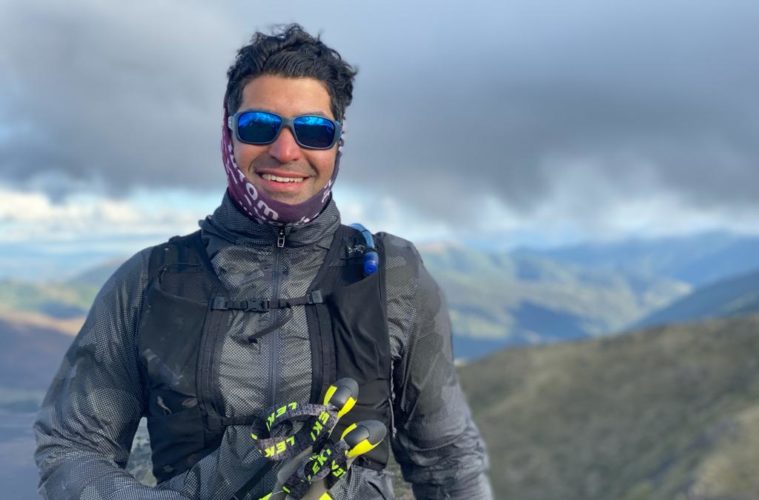“Branded Sponsor Content”
Transferable Skills
Numerous books and articles have been published about transferable or portable skills – abilities that can be useful in various work settings as well as academically and socially, and many prospective job seekers have attended courses and workshops on the topic. Although there are several listings of what these skills are, most include such work-related skills as technological literacy, teamwork, organization, multitasking, critical thinking, and communication, as well as such personal qualities as dependability, adaptability, human relations, creativity, and leadership.
Like many people, Andrew Aziz was familiar with the concept of transferable skills, but, also like many people, he didn’t think it would ever concern him.
The End of a Dream
In 2015, Andrew Aziz thought he had found his dream job. An honors graduate with a Ph.D. in clean technology from the University of British Columbia, he was working on the development of hydrogen fuel energy and had been recognized for his high-impact journal publications and patents. His career goal was to help the automotive industry to move away from fossil fuel by adopting a clean, no-pollution alternative. It was something he could see himself doing for the rest of his working years.
Then his employer dropped a bombshell, announcing that it was abandoning that area of research. Aziz and his colleagues were given severance packages and laid off. After 23 years of study and research in his chosen field, he knew that nanotechnology jobs were hard to find, and he was emotionally devastated. As he puts it “When I lost my job, my dreams and ego were crushed.”
Something Completely Different
Hoping for something that would restore his enthusiasm and self-respect, he decided to try something completely different – day trading on the financial market. At first, however, that did not go well at all. Within the first few months, he lost over $10,000 as the market willingly gobbled up all of his savings and his severance package.
But Aziz was not deterred. “I have a Ph.D. and have plenty of experience in research,” he told himself, “so I will just work hard to learn everything I can about trading. Research and learning – that’s what my Ph.D. is all about.” He worked at a very ordinary day job to provide day-to-day income and focused on learning how to trade during most of his personal time. He started waking up at 5 a.m. and learned how to trade the market from 6:30 to 8:00 Vancouver time, before going to work at 9 a.m., and he spent much of his evening and weekend time learning about trading.
Learning as much as he could about the stock market was not a quick or easy task. He spent two years on his self-assigned program, calling on the analytical training he had gone through in his doctoral program to transform himself from a professional engineer to a professional stock trader. There were certainly some speed-bumps in his road, but as time went on, he was gratified to see that his belief in the transferability of skills was being confirmed, and that reason, logic, patterns, and numbers were, in a sense, part of a universal language.
Different Skills for Different Situations
The particular skills that can be usefully transferred from one type of career to another will vary, of course, with each situation. Andrew Aziz needed to develop a high level of working knowledge about all aspects of day trading, so his skills in research, even though they had originally been applied to chemical engineering, had an element of universality that made them applicable to many other fields, including, in his case, the stock market.
Although day traders appear to be working alone, they are actually part of a community of traders, so the skills for working with others that Aziz had learned over the years were clearly relevant. And as he became a mentor for thousands of other traders across the worlds, even more of his previously-learned skills became useful.
“Same Skill, Different Goal”
“Trading stocks is notoriously complicated, which keeps a lot of people from really learning to trade, “Aziz says.” I explained the process of trading in the ‘If A, then B’ format that I learned while getting my doctorate. It was a lot like creating my dissertation. Same skill, different goal.”
Today Andrew Aziz is a Canadian trader, proprietary fund manager of Peak Capital Trading with net worth assets of $20 million, a successful investor and #1 best-selling author. He has ranked as one of the top 100 authors in the “Business and Finance” category for over four consecutive years (2016 to present). Aziz recently published his fifth book: Mastering Trading Psychology, and it’s already a best seller on Amazon. His previous books have been translated into eight languages and have sold over 250,000 copies worldwide. Aziz is the CEO and founder of the multimillion dollar companies Peak Capital Trading and Bear Bull Traders, and a valued mentor to thousands of other traders.
“Using What I Already Had, Just in a New Way”
“I went from Point A (nanomolecular engineering) to Point B (successful stock trader and author) by using what I already had, just in a new way,” he says.
Even though he is now working in a field that is very different from electrochemical engineering, he doesn’t consider the five years of his life that he invested in a Ph.D. to have been a waste of time and money. He points out that he is now able to apply the skills he used in engineering to his new career in stock trading.
“On the surface, I had been developing nanotechnology. But underneath, my real ‘skill’ was research. Give me any topic in the world, and I could become an expert,” Aziz explains.
Advertising disclosure: We may receive compensation for some of the links in our stories. Thank you for supporting LA Weekly and our advertisers.

